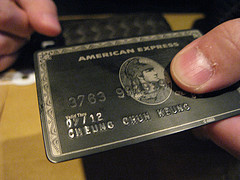With all the talk about the recession, job insecurity and lay offs, here are a few business jokes to lighten things up a bit.
The Flowers
A new business was opening and one of the owner”s friends wanted to send flowers for the occasion. They arrived at the new business site and the owner read the card; it said “Rest in Peace”. The owner was angry and called the florist to complain. After he had told the florist of the obvious mistake and how angry he was, the florist said. “Sir, I”m really sorry for the mistake, but rather than getting angry you should imagine this: somewhere there is a funeral taking place today, and they have flowers with a note saying, “Congratulations on your new location!”

Your First Worry
Fresh out of business school, the young man answered a want ad for an accountant. Now he was being interviewed by a very nervous man who ran a small business that he had started himself.”I need someone with an accounting degree,” the man said. “But mainly, I”m looking for someone to do my worrying for me.””Excuse me?” the accountant said.”I worry about a lot of things,” the man said. “But I don’t want to have to worry about money. Your job will be to take all the money worries off my back.” “I see,” the accountant said. “And how much does the job pay?” “I’ll start you at eighty thousand.””Eighty thousand dollars!” the accountant exclaimed. “How can such a small business afford a sum like that? “That,” the owner said, “is your first worry.”
Just Kidding
Reaching the end of a job interview, the human resources person asked a young engineer fresh out of MIT, “And what starting salary were you looking for? “The engineer said, “In the neighborhood of $125,000 a year, depending on the benefits package. “The interviewer said, “Well, what would you say to a package of 5-weeks vacation, 14 paid holidays, full medical and dental, company matching retirement fund to 50% of salary, and a company car leased every 2 years – say, a red Corvette? “The Engineer sat up straight and said, “Wow! Are you kidding? “And the interviewer replied, “Yeah, but you started it.”
The Order
A customer sent an order to a distributor for a large amount of goods totaling a great deal of money.The distributor noticed that the previous bill hadn’t been paid. The collections manager left a voice-mail for them saying, “We can’t ship your new order until you pay for the last one. “The next day the collections manager received a collect phone call, “Please cancel the order. We can ‘t wait that long. ”
A Professional Quiz
The following short quiz consists of 4 questions and will tell you whether you are qualified to be a “professional.” Scroll down for each answer. The questions are NOT that difficult.
1. How do you put a giraffe into a refrigerator?
The correct answer is: Open the refrigerator put in the giraffe and close the door. This question tests whether you tend to do simple things in an overly complicated way.
2. How do you put an elephant into a refrigerator?
Open the refrigerator put in the elephant and close the refrigerator. Wrong Answer!
Correct Answer: Open the refrigerator, take out the giraffe, put in the elephant and close the door. This tests your ability to think through the repercussions of your previous actions.
3. The Lion King is hosting an animal conference. All the animals attend except one. Which animal does not attend?
Correct Answer: The Elephant. The elephant is in the refrigerator. This tests your memory.
OK, even if you did not answer the first three questions correctly, you still have one more chance to show your true abilities.
4. There is a river you must cross. But it is inhabited by crocodiles. How do
you manage it?
Correct Answer: You swim across. All the crocodiles are attending the Animal Meeting. This tests whether you learn quickly from your mistakes.

Employee Want Ad Translations
Energetic self-starter: You’ll be working on commission.
Entry level position: We will pay you the lowest wages allowed by law.
Experience required: We do not know the first thing about any of this.
Fast learner: You will get no training from us.
Flexible work hours: You will frequently work long overtime hours.
Good organizational skills: You’ll be handling the filing.
Make an investment in you future: This is a franchise or a pyramid scheme.
Management training position: You’ll be a salesperson with a wide territory.
Much client contact: You handle the phone or make “cold calls” on clients.
Must have reliable transportation: You will be required to break speed limits.
Must be able to lift 50 pounds: We offer no health insurance or chiropractors.
Opportunity of a lifetime: You will not find a lower salary for so much work.
Planning and coordination: You book the bosses travel arrangements.
Quick problem solver: You will work on projects months behind schedule already.
Strong communication skills: You will write tons of documentation and letters.
Equation of Earnings
Engineers and scientists will never make as much money as business executives. Now a rigorous mathematical proof has been developed that explains why this is true:
Postulate 1: Knowledge is Power.
Postulate 2: Time is Money.
As every engineer knows,
Work = Power * Time
Since Knowledge = Power, and Time = Money, we have:
Work = Knowledge * Money
Solving for Money, we get:
Work
Money = ----------
Knowledge
Thus, as Knowledge decreases, Money increases, regardless of how much Work is done.
Conclusion: The Less you Know, the More you Make.
Note: It has been speculated that the reason why Bill Gates dropped out of Harvard’s math program was because he stumbled upon this proof as an undergraduate, and dedicated the rest of his career to the pursuit of ignorance.
(Image Credit)


















